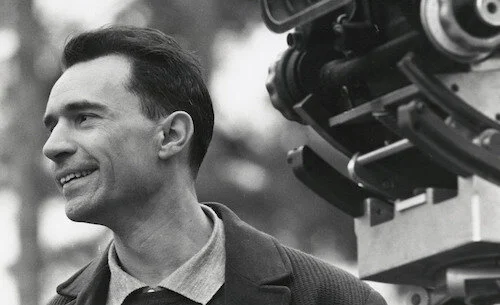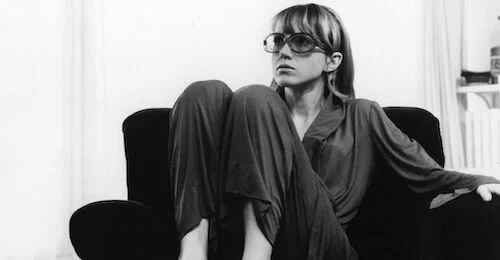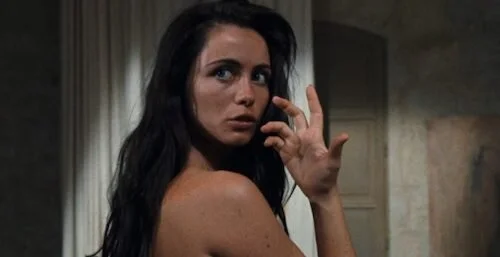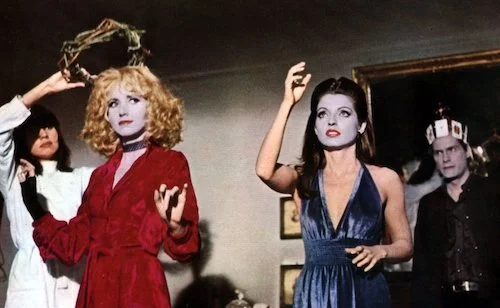Jacques Rivette: Five Films for Newcomers
Written by Andreas Babiolakis
Of all of the French New Wave game changers, Jacques Rivette felt the most unhinged. He was almost the antithesis to Jean-Luc Godard, who sliced and diced films until they were completely differently assembled visual creations in a hodge-podge sort of way. Rivette worked in the opposite direction, by stretching his films out to the point of unfamiliar resonance. Each character, plot device, setting, and other narrative trope worked on a linear level; Rivettes films were deconstructed beyond recognition, further changing the behaviours of all of these elements. It’s not easy to watch some of Rivette’s work, but I can’t recommend him enough to anyone who wants to find the most unique auteurs of all time. Not many directors — outside of Chantal Akerman, for instance — used time in film quite like Jacques Rivette. We remember him on the fifth anniversary of his death. Here are five films for newcomers of the works of Jacques Rivette.
5. Le Pont du Nord
Although a more conventional film by Rivette (I mean, it’s only two hours long, so that counts for something), Le Pont du Nord is still unique in the kinds of ways that only Rivette would attempt. For starters, this adventure film is tethered to Jeau de l’oie (a children’s game in France), and is applied in a whole new narrative way. The film itself then becomes its own kind of game, as if Rivette was likening plot and character development to the strategic plays and the luck of chance that boardgames grant us. That’s one way of rethinking narrative.
4. L’Amour fou
We’re now in familiar Rivette territory with the four hour long L’Amour fou. What’s interesting with this film is its niche, which other directors have attempted before (a rare common thread that Rivette partook in). It’s the idea that one’s art becomes a reflection of their life, and vice versa, as a theatrical production of Andromaque begins to take on the crumbling marriage of a director and his actress wife. L’Amour fou is also shot in both 35mm and 16mm film stocks, as the film hops between reality, documentation, and interpretation.
3. Out 1: Noli Me Tangere
One of the great pilgrimages of cinema, Out 1: Noli Me Tangere is a thirteen hour long (!) experiment on plot delivery in film. Shown in multiple parts and through various perspectives (an experimental acting troupe, a conning vagabond, and many others), Out 1 is an ambitious reinterpretation of the works of Honoré de Balzac, but it also feels a little bit like Rivette’s Ulysses with its stream-of-consciousness style. Everything is stretched out so much, until Rivette concludes the epic with the ultimate betrayal: a scene that lasts mere seconds to conclude the entire journey, as if to remind us that time is how we choose to display it in film at any moment.
2. La Belle Noiseuse
Of all of the films about art, La Belle Noiseuse is one of the most fascinating, because of how concerned it is with the creation of masterpieces and not the end results (as if to say that the works-in-progress are as important as the end result). For four hours, Rivette has us sit and watch art in motion (usually untouched by editing), allowing us to get lost in the sketches of a skilled hand. As the final masterpiece by Rivette, it’s only fitting that La Belle Noiseuse prioritizes his adoration for how motion pictures can frame art unlike any other medium.
1. Celine and Julie Go Boating
Of all of the risks and experiments Jacques Rivette took, my personal favourite of his is easily Celine and Julie Go Boating: a metaphysical wonderland featuring the two titular characters, as they hop from storyline to storyline (unfazed by the confinements of the regulations that motion pictures have been plagued by for far too long). The film is so exciting with how many rules it’s willing to break, whether they are narrative conventions, reality as we know it (by accessing alternate dimensions), and film as a visual medium. Absolutely no wall gets left unbroken in Celine and Julie: the magnum opus of Jacques Rivette’s filmography.
Andreas Babiolakis has a Masters degree in Film and Photography Preservation and Collections Management from Ryerson University, as well as a Bachelors degree in Cinema Studies from York University. His favourite times of year are the Criterion Collection flash sales and the annual Toronto International Film Festival.








